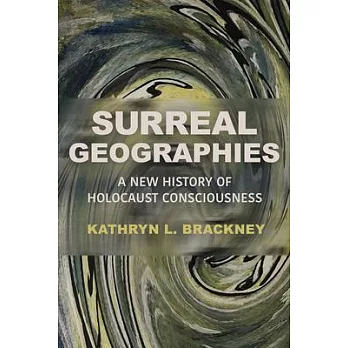Surreal Geographies recovers a forgotten archive of Holocaust representation. Examining art, literature, and film produced from the immediate postwar period up to the present moment, Kathryn L. Brackney investigates changing portrayals of Jewish victims and survivors. In so doing, she demonstrates that the Holocaust has been understood not only through the documentary realism and postmodern fragmentation familiar to scholars but also through a surreal mode of meaning making. From an otherworldly "Planet Auschwitz" to the spare, intimate spaces of documentary interviews, Brackney shows that the humanity of victims has been produced, undermined, and guaranteed through evolving scripts for acknowledging and mourning mass violence.
Brackney offers a new look at familiar works by authors and artists such as Claude Lanzmann, W. G. Sebald, and Paul Celan, while making surprising connections to contemporary scholars like Timothy Snyder and Donna Haraway, and events such as the Space Race. In the process, she maps out a decades-long process through which transnational conventions of mourning have emerged in Western Europe, North America, and Israel, functioning to constitute Jewish victimization as "grievable life." Ultimately, she shows how the Holocaust has developed into a figure for the destabilization and reformulation of the category of humanity and the problem of mourning across difference.


 天天爆殺
天天爆殺  今日66折
今日66折 






















 博客來
博客來 博客來
博客來 博客來
博客來 博客來
博客來 博客來
博客來